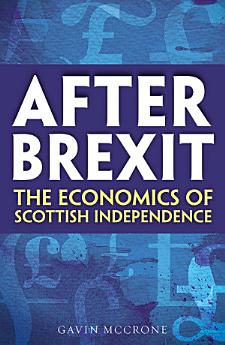After Brexit: The Economics of Scottish Independence
About this ebook
This new analysis takes into account a host of economic issues including deficit, debt, currency, energy (including North Sea oil and gas), pensions, mortgages and the financial sector. It weighs up the advantages of rejoining the EU single market, either as a full EU member or as a member of the EEA, with the disadvantages of a hard border with the rest of the UK.
Independence would create opportunities, but it would also bring many thorny problems which the Scottish government, and the Scottish people, would have to face.
About the author
Gavin McCrone has written and lectured about the Scottish economy over a period of many years. For over two decades he was Chief Economic Adviser to successive Secretaries of State for Scotland. He was successively head of two Scottish Government Departments – the Industry Department for Scotland and the Scottish Development Department.






